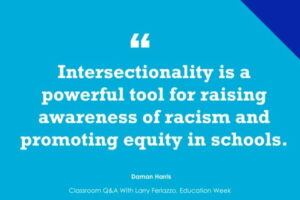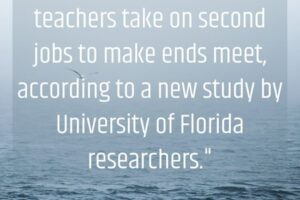
Stop Labeling Students “First-Gen” (opinion)
New policy mandates force us to rethink how best to meet what the Boyer 2030 Commission termed “the equity-excellence imperative.” One way to pursue this goal is to consider the role played by first-generation student success initiatives, which continue to enjoy broad public support. In the current climate, higher ed may be forgiven a rush to establish centers or initiatives for first-generation student success, as many colleges and universities already have. But before we get to raising funds and creating logos, let’s pause and consider new ways to think about and organize such efforts to best meet the moment.
To put it bluntly, what business is it of ours, or anyone’s, what a student’s parents’ educational attainment happens to be? The usual answer is that we inquire because we aim to foster upward social mobility, and because we know from research that students who are the first in their families to attend college do not succeed at the same cohort rates as so-called continuing-generation students. But I emphasize cohort rates because we are not talking about a group, defined by self-awareness and interaction, but indeed a cohort, defined by impersonal and ill-defined criteria. At the level of individuals and families, first-gen discourse presumes deficits, is intrusive and can be off-putting and condescending.
Neither of your parents (you have two, right?) earned a bachelor’s degree?
I’d venture that most who work with first-gen students would agree that there are enduring questions about how best to define who is and is not first-generation using one of several plausible definitions. And even after four decades of promotion, I think it’s fair to say that few students arrive on campus as self-conscious “first-gens,” however defined.
Some imagine that they qualify if they are the first of their siblings to attend college. Others wonder, understandably, if a parent’s associate degree or years of college attendance not resulting in degree attainment substitutes for an earned bachelor’s degree. A few may even think, erroneously, that they qualify if they are the first in their family to attend a particular institution.
And then there are the overriding problems of stigma and stereotype threat. Efforts to dispel negative connotations and instill pride notwithstanding—First!—most people can smell a rat when in the presence of Rodentia. While some minoritized students may find it a useful alternative to other, more vexing labels, many students wrestle with it, as they might with any label, especially in the absence of a related scholarship or other inducement. I used to regularly tell first-gens that the land-grant university to which they had matriculated was theirs, that it was made for them and that it was nice of them to let others use it, too. But such tricks of the trade are needed only because the reality, often stark, is so contrary.
Instead of fighting a Sisyphean battle tainted by class bias, I suggest that we acknowledge that first-gen discourse defines students by a characteristic that is out of their control and that the label is troubling when applied to individual students. Consider that we have more control over almost every other way of identifying ourselves, including our gender and sexuality! Parents, guardians and other parental authorities are as close to a given as it gets, and to define one by a given is reductionist and objectifying.
To help underscore the stakes involved, consider this thought experiment. What if we labeled students whose parents possess earned doctorates as “dockies” and awarded them membership in the honors program? Most would recoil at even the thought of it. We assume that dockies are privileged or at least not in need of privileged access to scarce resources. We imagine them as possessed of abundant social and cultural capital and a healthy amount of regular old capital, too. Why actively reproduce privilege?
But let us immediately observe that such assumptions are just as potentially ill-founded for individual dockies as they are for individual first-gens. Ask a Ph.D.-holding parent of a neurodiverse child, of a drug-addicted child, a child with disabilities, a child prone to perfectionism, a child of mild ambition and so forth, and they are apt to share an earful. And let us acknowledge that dockies are often given access to scarce resources such as merit-based scholarships and extra help via supportive honors programs, and for legitimate reasons. For one, these students earn such considerations by virtue of their academic achievement. They also may need them to fulfill their considerable potential.
The key distinction, then, is between how we relate to students as individuals and what we do to make our institutional practices and campus cultures accessible and just. But before saying more about that, I acknowledge that there is an entrenched cultural assumption in play. We hold that individuals are infinitely complex and of universal value, each unique and sacred. (I mean this exactly and empirically; no rhetorical flourish or exaggeration is involved.) Individual students are not, in this view, bearers of three or four defining categories, nor should we treat them as representatives of groups. That is called stereotypical thinking, and it leads to tokenism, and neither stereotypical thinking nor tokenism have ever been good things. Students have multiple identities, as we all do, and we should not presume which of them are most salient or assume that they are immutable or invariant.
When, however, we turn attention to institutional and cultural realities—particularly to our college and university’s policies and practices, to campus values, norms and built environment and so forth—then, yes, by all means, dust off social science and humanities textbooks and deploy concepts, data and pertinent humanistic discourses that are needed to make sense of systems, contested histories, shared meanings and the like. Here is where centers for first-generation student success have their rightful place, as hubs for institutional reform, designed to bring into existence a higher education that meets students where they are, as we say.
First-gen centers might support research into how students experience college life and in other ways help faculty, staff, administrators and graduate students working with undergraduate students to better understand and interact with them. (Three cheers for faculty meals in residence halls!) First-gen centers might facilitate integration of high-impact practices into curricula, rendering these no-longer-nice-to-haves affordable and accessible, and help banish class biases as revealed in diffuse condescension by the college-educated and well-heeled with respect to those thus othered and belittled. Let us put an end to arcane language used for the latent purpose of policing class distinctions and eliminate barriers of entry to STEM majors, which track already underresourced students into lower-paying professions, however otherwise socially vital and personally fulfilling.
Colleges and universities cannot meet their missions in a democratic society unless they are shorn of institutionalized discrimination rooted in white supremacy, patriarchy, what the poet Adrienne Rich called “compulsory heterosexuality,” ableism, ageism, as well as discrimination against veterans and active-duty armed service members, students whose home countries are not the United States or for whom English is not their first language, students from rural communities, students from urban communities, students from tribal communities, students from foster homes, students who are first-gen as well as students who identify with one or more of the above and then some. Our to-do list is long and varied.
First-gen discourse is, like most student success discourse, best suited for use by administrators. It is not usually the language of educators, nor should we foist it upon students themselves. To best aid students who are the first in their families to attend college, make higher education affordable, campuses welcoming, curricula efficient and effective. Facilitate transfer student success via inter-institutional peer tutoring, and in myriad similar ways remove the fences surrounding the ol’ ball field in the DEI social imaginary. Higher education may then serve the people, one individual at a time.
Source link



